Large Investments for 6G Research and Development in Korea
Korea’s Ministry of Science and ICT is gearing up to lead the next wave of network technology. They’ve earmarked an impressive 440 billion won (over $324 million) for the evolution of the sixth-generation (6G) network. A significant part of this initiative is the development of a high-speed, high-capacity optical transmission system. This system aims to minimize delays in wired connections, paving the way for immersive experiences like urban aerial transportation and virtual reality. It should be noted that many wireless infrastructure components and parts require KC EMC certification to be approved for import and sale in South Korea.
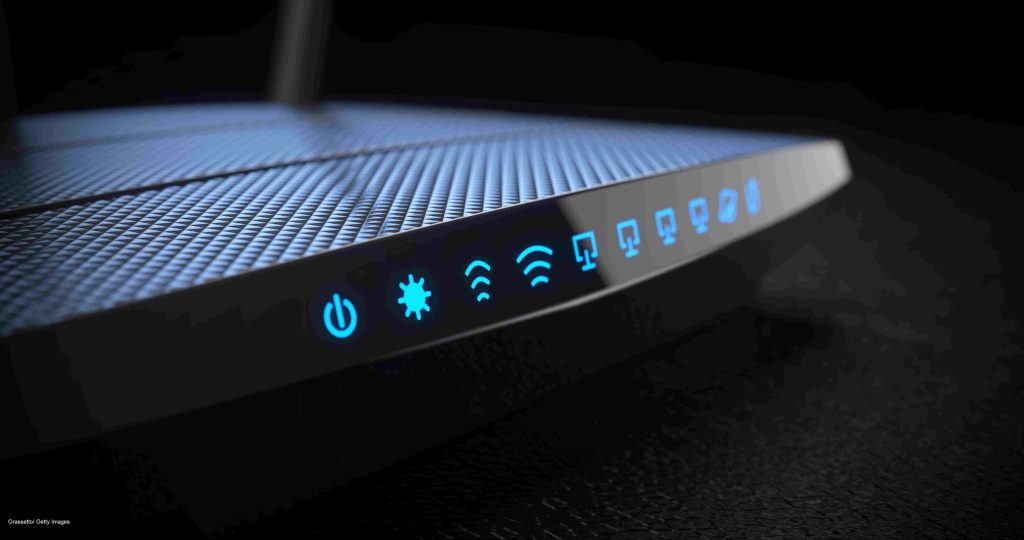
The ministry’s strategy also includes a focus on the upper-middle band, spanning frequencies from 7 GHz to 24 GHz. This is seen as a crucial step to enhance the capabilities of the current 5G network. Moreover, as the world shifts towards cloud-based solutions and software-driven platforms, the ministry is emphasizing the evolution of software-centric next-gen mobile networks.
In terms of standardization, the ministry is not only looking inwards. They’re committed to aligning domestically developed 6G technologies with global standards, which are anticipated to be introduced as early as next year. By 2026, the ministry aims to unveil preliminary results of its 6G endeavors, positioning Korea at the forefront of defining global standards for future network services.
Feel free to contact us any time if you need assistance or have any questions regarding Korean certifications like KC, KC EMC, KCs, KCs for explosion safety products or KGS factory registration.
Tel. Europe: +49-69-271 37 69 261
Tel. US: +1 773 654-2673
Email: info@korea-certification.com
For more information you can download our free brochure “Korea Certification Made Easy – The Booklet“.
Solid Processes for Korea Certifications – MPR International Visits Authorities and Test Laboratories in South Korea
The certification process for Korea is back to normal after the COVID-19 pandemic travel restrictions. During the pandemic, many foreign manufacturers suffered from the fact that Korean auditors could not travel to the production sites. During the pandemic, audits were either held remotely, paused, or in some cases carried out by third parties, depending on product type and process. Since the lifting of the travel restrictions, the auditors can once again travel internationally, and the alternative certification and re-certification processes have been discontinued. However, foreign manufacturers are still advised to obtain approvals for exports to Korea at an early stage, as almost all authorities still have a backlog for international travel and a limited personnel.
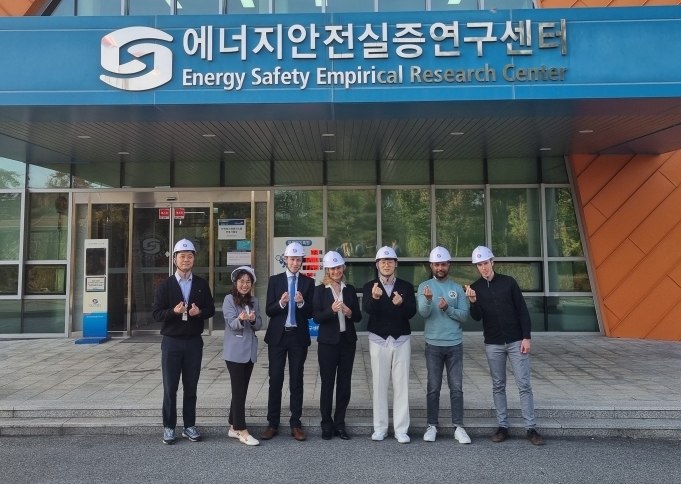
During a recent visit to South Korea, representatives from MPR International discussed the innovations in process flow with KOSHA, KGS, KTL, KTC and the relevant test labs .
Korean standards and product-specific implementation rules are regularly revised or reissued by the authorities, which sometimes has significant implications for the corresponding product manufacturers. New releases and updates are generally not announced publicly and must be tracked and implemented independently by manufacturers. Failure to comply can result in severe consequences, including certificate cancellation and/or a sales ban.
For example, the harmonization of approval standards in the area of KCs-Ex to the IECEx system is currently being pursued but has not yet been fully completed. Separate KCs Ex certification will still be required but should further simplify the process. In addition, there are many great innovations in the area of approval of equipment in the hydrogen sector and the test facilities required for this.
MPR International GmbH remains committed to maintaining close contacts with the certification bodies and test laboratories in Korea. This enables us to provide our customers with close and individual coordination and to facilitate the entry or expansion of your Korean business.
Feel free to contact us any time if you need assistance or have any questions regarding Korean certifications like KC, KC EMC, KCs, KCs for explosion safety products or KGS factory registration.
Tel. Europe: +49-69-271 37 69 261
Tel. US: +1 773 654-2673
Email: info@korea-certification.com
For more information you can download our free brochure “Korea Certification Made Easy – The Booklet“.
New Height in Eco-Friendly Car Sales
In the initial nine months of the current year, exports of environmentally conscious vehicles, including hybrids, electrics, and those powered by hydrogen, achieved a remarkable US$18 billion. In the previous month alone, automotive exports surpassed an impressive threshold of US$5.0 billion, an over 9 percent climb from the same timeframe a year ago. Total automotive exports up to this September skyrocketed to over US$52.0 billion. This trend of growth hasn’t waned and has been ongoing for 15 straight months since July of the previous year. Equipment and machinery used for the production of eco-friendly cars often require KC Certification to be approved for import and distribution in Korea.
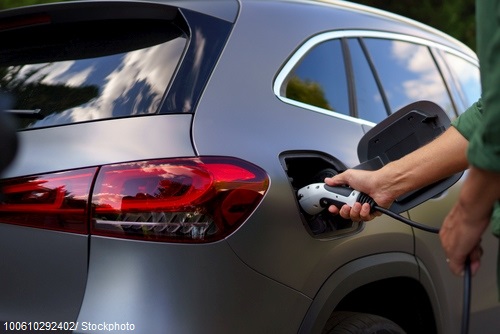
The catalyst for this surge in automotive exports is the increased demand for eco-friendly cars. In this timeframe, these green vehicle exports reached nearly US$18 billion. The rising number in eco-friendly vehicle exports primarily occurred in North America and the European Union (EU). Exports last month to North America were substantial at over US$2.75 billion, and those to the EU were also significant, totaling over US$846 million.
Up until the third quarter of this year, there was an uptick in both the number of vehicles exported and the number of vehicles produced and sold domestically. The export figures were impressive at over two million units, a 23.7 percent growth. Domestic sales rose by 5.78 percent, resulting in approximately 1.28 million units, while production numbers swelled by over 17 percent, culminating in over 3 million units.
In reaction to the U.S. Incentives for Reduction of Auto Emissions (IRA) Act, the government has been proactive. The domestic industry’s push to boost sales of eco-friendly commercial vehicles, including those for rent and lease, has led to IRA-eligible sales reaching over 88,000 units by this September. This number is a big hike compared to the same time last year and has already exceeded the previous full year’s sales of over 73,000 units.
Feel free to contact us any time if you need assistance or have any questions regarding Korean certifications like KC, KC EMC, KCs, KCs for explosion safety products or KGS factory registration.
Tel. Europe: +49-69-271 37 69 261
Tel. US: +1 773 654-2673
Email: info@korea-certification.com
For more information you can download our free brochure “Korea Certification Made Easy – The Booklet“.
Hyundai and Iveco deepen partnership with new fuel cell bus
Hyundai Motor unveiled a new fuel cell bus in early October. The vehicle, developed in collaboration with Iveco, made its debut at Busworld 2023 in Brussels, the largest exhibition of its kind in the world. The E-Way H2 is a 12-metre long low-floor city bus with a 310 kW electric motor. It draws its energy from a fuel cell system from the Hyundai subsidiary HTWO. With the advanced system, the bus can either be fuelled with hydrogen or the integrated battery can be charged. Regardless of this, Hyundai says the bus can travel up to 450 km on one fill or charge. Components, equipment, and machinery required for fuel cell and vehicle production in many cases must undergo KC Certification or KGS Registration to be approved for import and distribution in Korea.
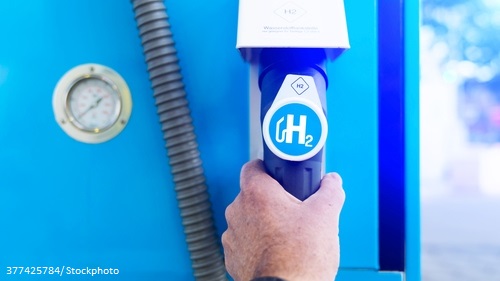
As early as March 2022, the two companies signed a memorandum of understanding for the joint development of vehicle technologies and platforms as well as the mutual supply of components. This initially resulted in the presentation of a jointly developed hydrogen-powered delivery vehicle in September 2022. The eDaily, based on a conventional Iveco Daily delivery van, was presented at the IAA Commercial Vehicles exhibition in Hannover. The vehicle is equipped with a 140 kW electric motor from Iveco subsidiary FPT Industrial and a 90 kW fuel cell from Hyundai Motor. The seven-tonne van is fully charged within 15 minutes and can travel up to 350 km on one charge. The payload is up to three tonnes, depending on the version.
We offer certification services for all product areas, including KC certification for consumer products and especially electronics, KC EMC certification for electronic products and KCs certification for machinery, as well as KCs for explosion-proof products. We are at your disposal for all questions regarding Korea certifications.
Feel free to contact us any time if you need assistance or have any questions regarding Korean certifications like KC, KC EMC, KCs, KCs for explosion safety products or KGS factory registration.
Tel. Europe: +49-69-271 37 69 261
Tel. US: +1 773 654-2673
Email: info@korea-certification.com
For more information you can download our free brochure “Korea Certification Made Easy – The Booklet“.
KPS recycles used Batteries for Samsung Electronics
A subsidiary of the South Korean KPS Corporation, Segi Recycling Technology, will soon recycle old batteries from so-called uninterruptible power supplies, UPS for short, on behalf of Samsung Electronics. As the business magazine KED Global reported at the beginning of July, Segi Recycling Technology signed a corresponding agreement with Samsung Electronics for the collection, transport and disposal or recycling of batteries from the industry. This will involve the recycling of spent batteries from a total of seven Samsung sites in South Korea. For battery related products, KC certification, KCs certification or other Korean product certifications are often required to be approved for the Korean market.
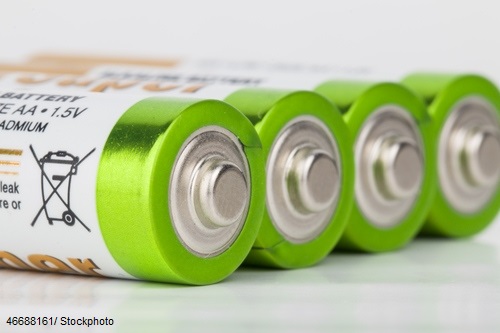
UPS are used in server rooms and data centres as an immediate backup power supply in case of power outages or fire. The batteries in these devices are essential for the operation of data centres where large amounts of company data are stored or many data movements take place. Currently, most batteries are still based on lead-acid cells and will gradually be replaced by newer lithium-ion batteries. Segi Recycling Technology is currently preparing to enter the EV battery recycling business. According to Chairman Kim Min-hong, recycling old industrial batteries is a good opportunity to expand business activities.
Certifications for the Korean market are a complex hurdle and difficult to navigate due to different authorities and certification systems. With over 15 years of experience in the certification business, MPR International GmbH is your best point of contact for competent service when it comes to exporting to Korea. For example, KC Safety is relevant for electronics and household products, which are mostly intended for consumers, as well as products for children and babies.
Feel free to contact us any time if you need assistance or have any questions regarding Korean certifications like KC, KC EMC, KCs, KCs for explosion safety products or KGS factory registration.
Tel. Europe: +49-69-271 37 69 261
Tel. US: +1 773 654-2673
Email: info@korea-certification.com
For more information you can download our free brochure “Korea Certification Made Easy – The Booklet“.
Market for EV charging stations in South Korea has high growth potential
With the increasing number of EVs in South Korea, the market for corresponding charging stations is also growing. Therefore, many large companies are entering the field of charging stations and infrastructure, some of them even with only this main business. As the business magazine “Business Korea” writes, almost all major domestic companies are now active in the EV charging business. Apart from Samsung, South Korea’s four largest conglomerates have entered the market, either by acquiring companies or providing their own services. In many cases, products from the fields of batteries and electromobility in general require KC Certification for Korea in order to be approved for import and sale there.
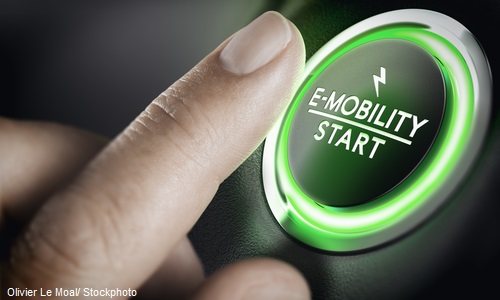
SK Group is the most active group and has several subsidiaries in the EV charging business: SK Signet manufactures EV charging stations, SK electlink operates the largest network of charging stations in the country and SK E&S provides charging stations for car parks. Competitor LG Electronics, on the other hand, acquired “Apple Mango” to accelerate its entry into this business and later renamed it HiEV Charger. Founded in 2019, HiEV owns proprietary technologies for charging stations.
As a manufacturer of EVs, the Hyundai Motor Group focuses on setting up and operating fast-charging stations. For this purpose, the subsidiary “Korea Electric Vehicle Charging Service” was founded, in which Hyundai and Kia each invested 23 million US dollars. The fast-charging stations have a special function called “Plug&Charge”, which automatically handles authentication, charging and payment. Hyundai plans to build 3,000 fast-charging stations in South Korea by 2025. The fourth group to enter the charging business is Lotte Group. For this purpose, the IT subsidiary Lotte Information Communication has taken over the infrastructure company Joongang Control, formerly EVSIS. As a goal of the takeover, around 13,000 EVSIS charging stations are to be built at important urban parking facilities by 2025. Furthermore, Lotte IC has good chances of winning contracts abroad. In Indonesia, for example, the relocation of the capital Jakarta is creating a new “smart city” that requires EV charging infrastructure in large supermarkets and shopping centres.
The reason for the strong commitment of the large corporations in South Korea to the charging business lies in the high growth opportunities. The German consultancy Roland Berger, for example, estimates that the global EV charging business will grow sixfold from its current value of 55 billion US dollars to 325 billion US dollars by 2030. Despite the good market prospects, the coverage with charging stations in South Korea is insufficient. According to information from the relevant ministries, the number of electric cars is around 424,200, but there are only just under half of the charging stations available, around 225,730.
We offer certification services for all product sectors, including KC certification for consumer products and especially electronics, KC-EMV certification for electronic products and KCs certification for machinery as well as KCs for explosion-proof products. We are at your disposal for all questions regarding Korea certifications.
Feel free to contact us any time if you need assistance or have any questions regarding Korean certifications like KC, KC EMC, KCs, KCs for explosion safety products or KGS factory registration.
Tel. Europe: +49-69-271 37 69 261
Tel. US: +1 773 654-2673
Email: info@korea-certification.com
For more information you can download our free brochure “Korea Certification Made Easy – The Booklet“.
Posco celebrates Groundbreaking for Lithium Hydroxide Plant in South Korea
Posco Holdings, the parent company of the world’s sixth-largest steelmaker, celebrated a groundbreaking ceremony on 13 June 2023 to begin construction on a lithium hydroxide plant. Located in the Yulchon 1 Industrial Complex in South Jeolla Province, the plant is part of Posco Group’s strategic plan to further expand its battery value chain. The focus is on raw materials such as lithium and nickel, materials for battery production and the recycling of used batteries. As the business newspaper KED Global writes on its website, the new factory is expected to be able to produce around 25,000 tonnes of lithium hydroxide per year. This amount is enough for about 600,000 EV batteries. The investment sum for the project is estimated at 450 million US dollars, and the plant is scheduled to start operations in 2025. Posco Lithium Solution, a subsidiary of Posco Holdings, will finance, build and operate the plant. Machinery equipment and other products involved in production often require KC Certification to be approved for import and operation in Korea.
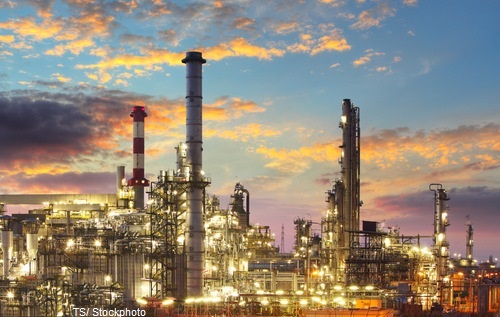
In a pioneering move by purchasing a salt lake in Salta, Argentina, in 2018, Posco Holdings became the first South Korean company in Argentina’s lithium business. The company confirmed that the new factory was part of an investment in Argentina announced in October last year. While lithium hydroxide will be produced domestically, the feedstock lithium carbonate will be extracted from the Argentinian salt lake. By 2028, Posco Holdings plans to increase lithium production to 100,000 tonnes by using this salt lake. In other business activities, Posco Group is building a spodumene lithium ore plant for Posco-Pilbara Lithium Solution and operating an electrode material factory for Posco Future M. In addition, a battery recycling plant is to be built by Posco HY Clean Metal. All of the aforementioned projects are being built in the Yulchon Industrial Complex and are intended to make this location a hub for battery production.
Feel free to contact us any time if you need assistance or have any questions regarding Korean certifications like KC, KC EMC, KCs, KCs for explosion safety products or KGS factory registration.
Tel. Europe: +49-69-271 37 69 261
Tel. US: +1 773 654-2673
Email: info@korea-certification.com
For more information you can download our free brochure “Korea Certification Made Easy – The Booklet“.
Hyundai Rotem presents scale model of hydrogen train
Already for the eleventh time, the Korea Railways & Logistics Fair took place in the BEXCO exhibition halls in Busan in mid-July. The South Korean railway manufacturer Hyundai Rotem, a subsidiary of the Hyundai Motor Group, participated in the largest domestic railway fair and presented its latest technologies and vehicles. According to Hyundai Rotem’s own information, their stand area under the motto “H-Flow” was about 3,700 square metres. H-Flow” represents the company’s vision of passenger-friendly trains, new technologies and environmentally friendly hydrogen powertrains. Hydrogen propulsion production uses, among other things, pressure vessels that usually require KGS registration to be approved for import in Korea.
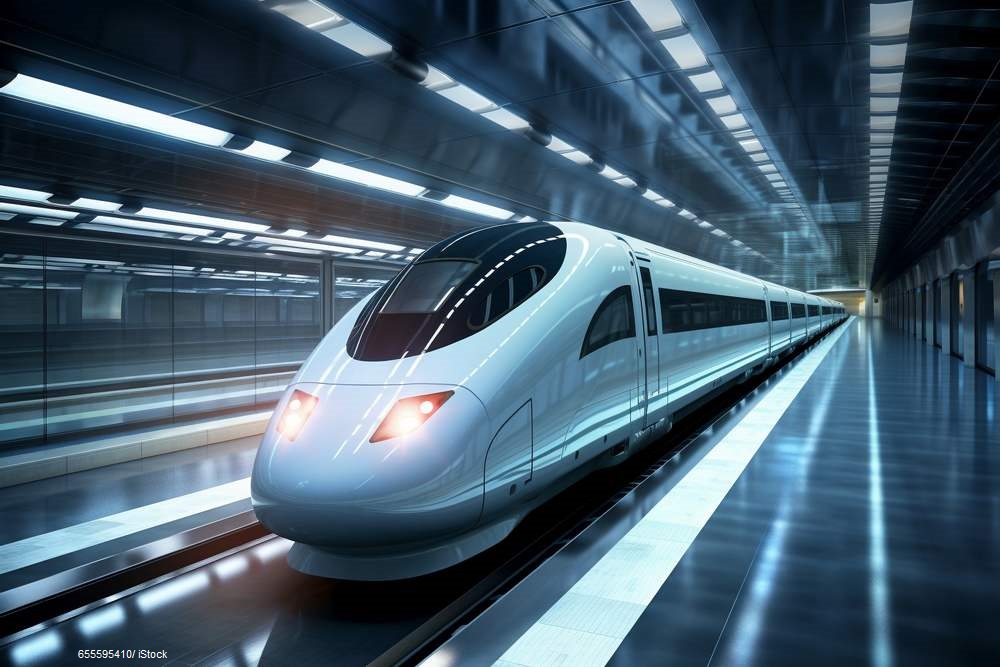
At the entrance to the stand, visitors saw a model of the EMU-320 high-speed train developed in South Korea, as well as an exhibition on the history of high-speed rail in the country. The exhibition gives visitors an overview of the 20-year history of high-speed trains in South Korea, which began with the opening of the Seoul-Busan line in 2004. In another stand area dedicated to hydrogen technology, Hyundai Rotem presented a scale model of a hydrogen-electric train as a premiere. The railcar is currently being supervised as a demonstration project by the Ministry of Trade, Industry and Energy and is expected to be operational by the end of the year.
The hydrogen-electric train is designed to help improve the urban environment in the CO₂-neutral era. In June, the train won first prize at the iF Design Award 2023, making it the first railway vehicle to receive such an award. At its stand, Hyundai Rotem showed other examples of its trains such as the electric GTX-A for the Seoul metropolitan area, double-decker trains for Sydney, Australia, electric commuter trains for the railway adminstration of Taiwan and a tram for the Polish city of Warsaw. Furthermore, visitors could experience the operation and maintenance of trains via virtual reality (VR) and augmented reality (AR).
Feel free to contact us any time if you need assistance or have any questions regarding Korean certifications like KC, KC EMC, KCs, KCs for explosion safety products or KGS factory registration.
Tel. Europe: +49-69-271 37 69 261
Tel. US: +1 773 654-2673
Email: info@korea-certification.com
For more information you can download our free brochure “Korea Certification Made Easy – The Booklet“.
Renault plans new EV plant at its Busan site in Korea
French carmaker Renault S.A. plans to build a new EV plant in South Korea to meet rising demand for environmentally friendly vehicles in Asia. Renault, the world’s fourth-largest carmaker, plans to build the plant with an annual production capacity of 200,000 EVs in Busan, where the French company already has a manufacturing base. In many cases, products from the fields of batteries and electromobility in general require KC Certification for Korea in order to be approved for import and sale there.
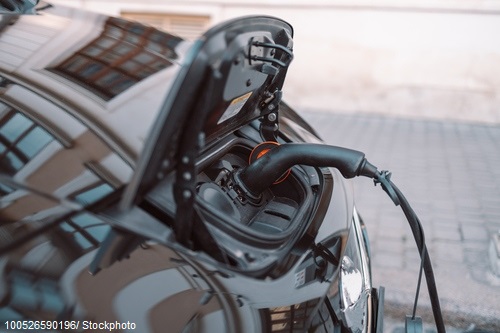
The news was announced by Guido Haak, vice-chairman of the Renault Group during a meeting with Busan Mayor Park Heoong-joon in Paris. Park went to Paris as part of a delegation with South Korean President Yoon Suk Yeol to attend the General Assembly of the Bureau International des Expositions (BIE). The BIE is the organiser of the “Expo” fairs, and South Korea is bidding with Busan for the Expo in 2030. Busan is a long-standing Renault site, where seven car models and around 250,000 vehicles a year currently rolling off the production line.
According to Renault Vice President Haak, the Busan plant is an important location for the carmaker. If the project is successfully executed, Renault would be the first foreign car brand with its own EV production in South Korea. Industry insiders estimate that Renault will invest more than €773 million in the construction. Taking into account the construction period, experts say the EV plant could start operations in early 2027. An official at the French company’s South Korean subsidiary, Renault Korea Motors Co, said the EV production facilities will be located in existing facilities.
Feel free to contact us any time if you need assistance or have any questions regarding Korean certifications like KC, KC EMC, KCs, KCs for explosion safety products or KGS factory registration.
Tel. Europe: +49-69-271 37 69 261
Tel. US: +1 773 654-2673
Email: info@korea-certification.com
For more information you can download our free brochure “Korea Certification Made Easy – The Booklet“.
South Korean HD Hyundai Infracore targets green equipment market
HD Hyundai Infracore, the construction equipment manufacturer of the South Korean HD Hyundai Group, is pushing into the market of environmentally friendly equipment. This includes the launch of a small all-electric excavator for the global market next month. HD Hyundai Infracore, formerly Hyundai Doosan Infracore, will soon unveil the 1.7-tonne small excavator, which is powered by electric motors and batteries instead of a diesel engine, according to industry insiders. In addition to pollution-free operation, noise and vibration are also said to be lower thanks to the electric drive. The batteries for the excavator come from LG Energy Solution, the world’s second-largest e-vehicle battery manufacturer. For battery related products, KC certification, KCs certification or other Korean product certification is often required to be approved for the Korean market.
The excavator, which the company says will be suitable for country homes and farms, will cost around US$35,000 in South Korea. HD Hyundai Infracore presented the first prototype as early as 2020 and planned to introduce the electric excavator at the beginning of this year. However, the launch was delayed for marketing reasons. In addition, HD Hyundai Infracore and group subsidiary HD Hyundai Construction Equipment plan to develop more environmentally friendly machinery powered by batteries or hydrogen. According to the business magazine KED Global, the two companies will produce excavators with electric drives weighing up to 14 tonnes. HD Hyundai Construction plans to mass-produce a 1.9-tonne electric excavator next year. Larger construction machinery weighing more than 20 tonnes will be powered by hydrogen from 2026. Recently, HD Hyundai Construction also began developing plug-in hybrid construction machines that use a battery as an energy source for short distances and then switch on a diesel engine.
Feel free to contact us any time if you need assistance or have any questions regarding Korean certifications like KC, KC EMC, KCs, KCs for explosion safety products or KGS factory registration.
Tel. Europe: +49-69-271 37 69 261
Tel. US: +1 773 654-2673
Email: info@korea-certification.com
For more information you can download our free brochure “Korea Certification Made Easy – The Booklet“.



